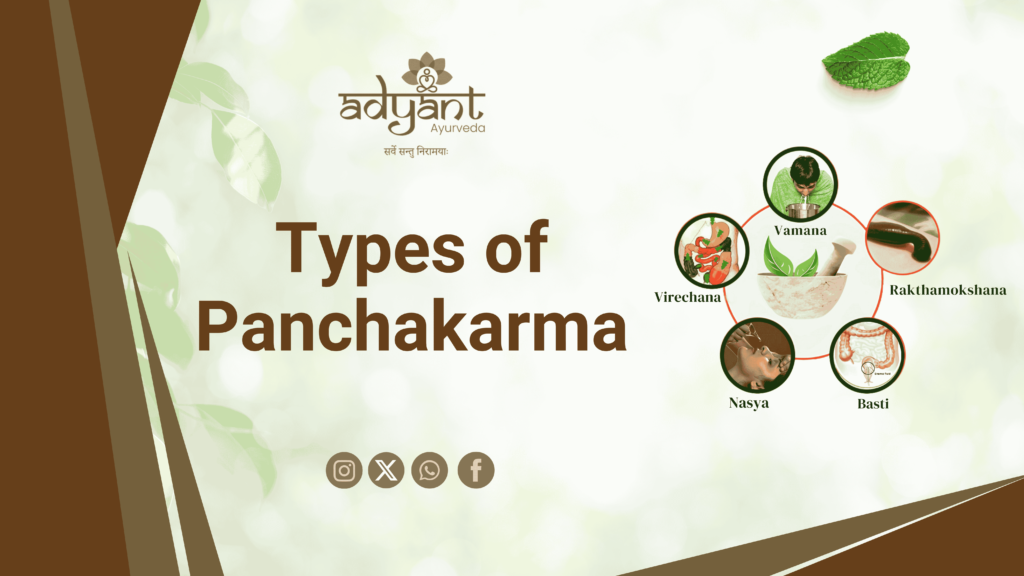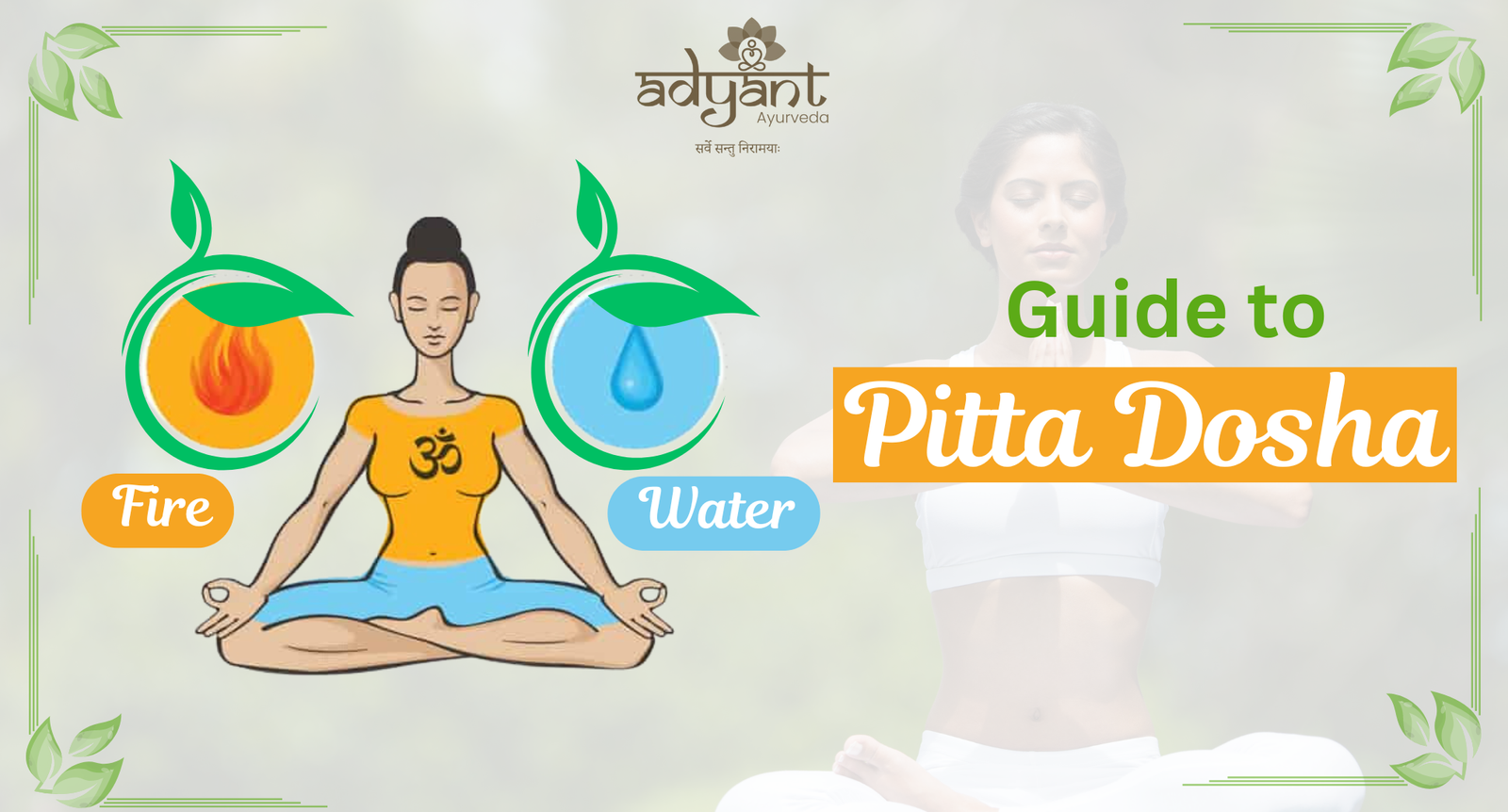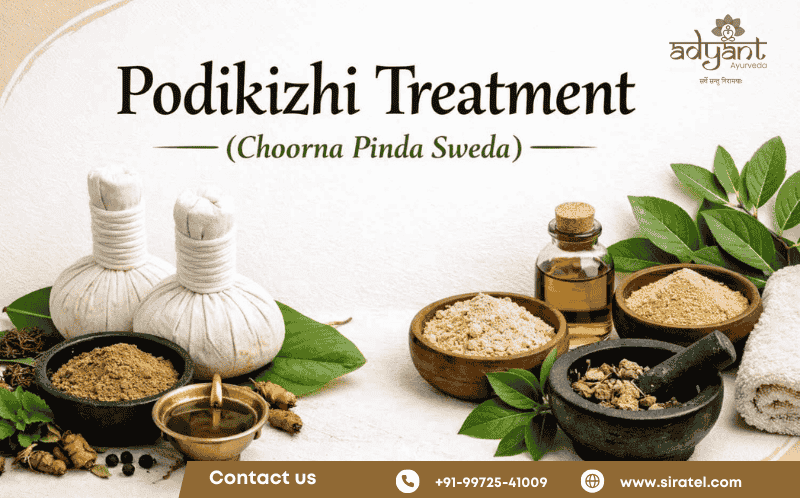Table of Contents
Toggle
For most people, the word ‘Ayurveda‘ instantly brings to mind images of warm oils, herbal therapies, and especially one word – ‘Panchakarma‘. So deeply intertwined are the two that Panchakarma has become the very face of Ayurveda in the public imagination. But while many associate it with spa-like massages or seasonal detoxes, Panchakarma is far more than that.
In today’s fast-paced, stress-filled world, many people suffer from fatigue, digestive issues, joint pain, hormonal imbalances, or lifestyle disorders. While modern medicine often addresses symptoms, Ayurveda goes deeper—treating the root cause through powerful natural therapies like Panchakarma.
Panchakarma is a time-tested detox and rejuvenation therapy that clears toxins (Ama), strengthens digestion (Agni), balances the doshas (Vata, Pitta, Kapha), and restores health from within.
But here’s the most important question: What are the different types of Panchakarma, and which one is right for you?
This article aims to explore the five types of Panchakarma, their benefits, and how you can choose the one best suited for your unique needs. And how they can serve not only as treatment but also as a preventive wellness protocol in today’s world with the expert guidance of Adyant Ayurveda, Bangalore’s leading Ayurvedic clinic.
What Is Panchakarma?
Panchakarma literally means “five actions” in Sanskrit (pancha = five, karma = procedures). It refers to five main therapeutic procedures designed to eliminate toxins (ama) from the body and restore the natural balance of the three doshas—Vata, Pitta, and Kapha.
It works through a structured protocol involving:
- Purva Karma (preparatory phase),
- Pradhana Karma (the five main therapies),
- and Paschat Karma (post-care rejuvenation and diet).
What makes Panchakarma unique is its deep personalization—treatments are customized based on an individual’s constitution (prakriti), current imbalance (vikriti), digestive strength (agni), mental state, age, and season. You can visit our latest Panchakarma Treatment guide to know more.
Why Understanding the Types of Panchakarma Matters
Many people are familiar with the term ‘Panchakarma‘ but remain unclear about what the “five” actions actually are. Each of the five therapies targets a different system or imbalance. Some are meant for eliminating excess Kapha or Pitta; others calm down aggravated Vata. Some are more physical, while others target the emotional and neurological planes.
Let’s now explore each of the five Panchakarma therapies—their indications, benefits, mode of action, and scientific relevance.
1. Vamana (Therapeutic Emesis)
Indications: Kapha disorders like asthma, chronic allergies, sinus congestion, bronchitis, PCOS, PCOD, obesity, and skin diseases like psoriasis.
Procedure: After internal oleation and fomentation, the patient is given a medicated decoction to induce controlled vomiting, expelling accumulated Kapha from the stomach and respiratory tract.
Benefits:
- Clears mucus and respiratory congestion
- Enhances digestion and metabolism (Agni)
- Improves skin conditions and metabolic syndromes
- Reduces heaviness, lethargy, and water retention
Scientific Evidence:
A 2020 study in Indian Journal of Traditional Knowledge found that Vamana significantly reduced inflammatory cytokine levels in patients with allergic asthma, validating its immunomodulatory role.
At Adyant Ayurveda, we use classical Vamana therapy only after detailed prakriti analysis and pre-detox preparation to ensure safety and success.
2. Virechana (Therapeutic Purgation)
Indications: Pitta disorders like hyperacidity, skin diseases, liver dysfunction, migraines, hormonal imbalances, and metabolic toxicity.
Procedure: After preparatory steps, the patient is given laxative as per Ayurveda classics to induce purgation. It removes toxins from the small intestine and liver region.
Benefits:
- Detoxifies liver, gallbladder, and intestines
- Clears inflammatory skin conditions like eczema and acne
- Alleviates headaches, heat-related issues, and stress
- Promotes clarity of mind and emotional stability
Scientific Evidence:
A 2019 clinical trial published in AYU Journal showed that Virechana improved liver enzyme profiles and reduced symptoms in patients with non-alcoholic fatty liver disease (NAFLD).
Why Choose Adyant? We use customized herbal formulations and dietary support to make Virechana effective, gentle, and deeply cleansing.
3. Basti (Medicated Enema)
Indications: Vata disorders such as constipation, arthritis, lower back pain, sciatica, neurological disorders, infertility, and dry skin conditions.
Procedure: Medicated oils (Anuvasana Basti) or decoctions (Niruha Basti) are administered rectally to nourish and cleanse the colon.
Benefits:
- Restores Vata balance and calms the nervous system
- Relieves joint stiffness, constipation, and lower back pain
- Improves sleep, concentration, and reproductive health
- Enhances absorption and immunity through colon nourishment
Scientific Evidence:
A 2021 study in Journal of Ayurveda and Integrative Medicine found that Basti therapies were effective in reducing symptoms of IBS and rheumatoid arthritis by improving gut motility and reducing inflammation.
Adyant Ayurveda Advantage: Our personalized Basti programs relieve chronic Vata imbalances while restoring vitality and calmness.
Ayurvedic Note: Basti is considered “Ardha Chikitsa” (half of all treatment in Ayurveda) because of its deep systemic action.
4. Nasya (Nasal Therapy)
Indications: Head and neck disorders—sinusitis, migraine, nasal congestion, memory loss, emotional imbalance, eye and ear conditions.
Procedure: After head massage and fomentation, medicated oil or herbal extracts are instilled into the nostrils to cleanse and nourish the sinuses and upper channels.
Benefits:
- Clears sinuses and improves nasal breathing
- Enhances memory, sleep, and mental focus
- Promotes hair health and prevents premature greying
- Helps in migraine, emotional tension, and hormonal balance
Scientific Evidence:
According to a 2018 study in International Journal of Research in Ayurveda and Pharmacy, Nasya improved sleep quality and parasympathetic response in patients with insomnia, indicating benefits in stress regulation.
What Makes Adyant Unique: We combine Nasya with relaxing therapies like Shiro Abhyanga and Dhoomapana (herbal smoke) to enhance results.
5. Raktamokshana (Bloodletting Therapy)
Indications: Blood-borne disorders such as acne, eczema, gout, abscess, varicose veins, and inflammatory joint issues.
Procedure: Bloodletting is done either through surgical means (venesection) or non-surgical methods like leech therapy (Jalaukavacharana).
Benefits:
- Removes inflammatory toxins from the bloodstream
- Clears stubborn skin conditions
- Improves circulation and relieves venous congestion
- Reduces swelling, pain, and local inflammation
Scientific Evidence:
Leech therapy is now being used in modern reconstructive surgery to manage venous insufficiency. A 2020 integrative medicine review confirmed its effectiveness in vascular disorders and wound healing.
At Adyant: We perform Raktamokshana with utmost hygiene, precision, and only when clinically indicated.
Explore our price list to know about the Panchakarma treatment cost in Bangalore or India.
Which Panchakarma Therapy is Right for You?
Choosing the right Panchakarma depends on your dominant dosha, current health condition, and season. Here’s a simple guide:
| Symptom / Condition | Dominant Dosha | Recommended Panchakarma |
| Cold, cough, sinus, weight gain | Kapha | Vamana |
| Acidity, skin rashes, irritability | Pitta | Virechana or Raktamokshana |
| Constipation, anxiety, fatigue | Vata | Basti |
| Migraine, hormonal imbalance | Vata + Pitta | Nasya + Virechana |
| Chronic disorders (e.g., PCOS, arthritis) | Tridoshic | Sequential Combination Therapies |
Tip: The best way to know which therapy is right for you is through an Ayurvedic consultation.
Preventive Applications and Relevance of Panchakarma
Panchakarma isn’t just for treating diseases—it has immense value as a preventive tool. When done seasonally, it prevents doshic accumulation and lifestyle diseases from setting in.
Why Panchakarma as Prevention Matters Today:
- Helps reverse early-stage metabolic disorders
- Reduces toxic load from food, stress, and environment
- Strengthens immunity (Ojas) and gut health (Agni)
- Enhances mental clarity and emotional resilience
- Promotes longevity and vitality
When to Take Panchakarma Preventively:
- At the change of seasons (especially before monsoon and winter)
- During pre-conception planning for couples
- For professionals under chronic stress or burnout risk
- Before or after major life transitions (marriage, childbirth, menopause)
- As a yearly health reset to maintain vitality
Research Insight
A 2016 study at the Chopra Center in California found that a 10-day Panchakarma program led to significant changes in plasma metabolites, immune markers, and stress levels—suggesting deep cellular renewal even in healthy individuals.
Types of Panchakarma Available at Adyant Ayurveda
At Adyant Ayurveda, we offer all five classical Panchakarma therapies, administered by experienced Ayurvedic doctors in a safe, serene, and hygienic environment. Each therapy is tailored to your doshic imbalance, health condition, and individual constitution.
At Adyant Ayurveda, we follow the classical Panchakarma protocols tailored to individual needs, with a focus on safety, authenticity, and comfort.
Why Patients Choose Us:
- 25+ years of Ayurvedic expertise
- State-of-the-art Panchakarma rooms
- Customized detox programs
- Herbal medications and dietary support
- Post-Panchakarma rejuvenation care
Whether you’re dealing with a chronic health issue or simply want to detox and rejuvenate, our Panchakarma programs are completely personalized for your mind-body constitution.
Which Type of Panchakarma is Best? – Seasonal Guide
| Panchakarma Therapy | Best Season | Balances | Ideal For |
| Vamana | Spring (Vasanta) | Kapha | Allergies, asthma, sinusitis, obesity |
| Virechana | Autumn (Sharad) | Pitta | Skin issues, acidity, liver detox |
| Basti | Monsoon (Varsha) | Vata | Constipation, joint pain, anxiety |
| Nasya | Late Winter to Early Spring | Kapha + Vata | Sinusitis, migraines, hormonal imbalance |
| Raktamokshana | Late Summer to Early Autumn | Pitta | Acne, eczema, hypertension, inflammatory issues |
However, Panchakarma can be done year-round based on your health condition under expert supervision.
Final Thoughts
The five types of Panchakarma offer powerful detox and healing tools that restore your body to its natural state of balance. Choosing the right therapy depends on understanding your dosha imbalance, current symptoms, and overall health goals.
At Adyant Ayurveda, our experienced doctors take a personalized approach, ensuring that your Panchakarma journey is safe, authentic, and deeply transformative.
Book Your Panchakarma Consultation Today
Visit us at Adyant Ayurveda, Bangalore
Call now to schedule your dosha analysis at +919972541009








